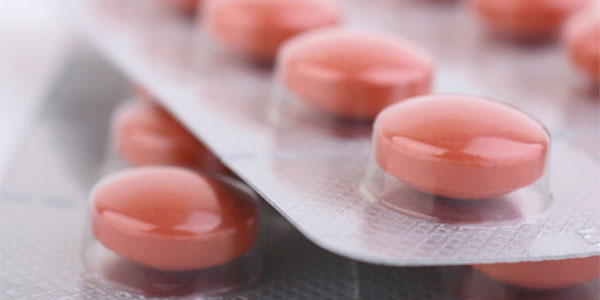Several types of cancer can be treated with hormone therapy, including prostate cancer, breast cancer and endometrial cancer. If hormone therapy is an option for the type of cancer you have, your doctor will talk with you about how this kind of therapy might benefit you, as well as the potential side effects.
Hormones and Cancer Cells
Some hormones can stimulate cancer cells to grow. For example, the hormone testosterone is necessary for normal prostate function, but it can also promote the growth of prostate cancer cells. Estrogen is needed for a woman’s development and fertility, but it can also stimulate the growth of breast cancer cells.
Cancer researchers have developed several hormone-based therapies that can interrupt those cancer growth-promoting pathways. Some hormonal therapies decrease the amount of hormones produced by the body, while others block the action of the hormones on cancer cells.
Hormone therapy is termed a systemic therapy, because it works throughout the body. But it is more targeted than chemotherapy, another type of systemic therapy. Hormone therapy drugs don’t act on unrelated cells, as chemotherapy can. They act only on pathways related to the hormones.

Hormone Therapy for Prostate Cancer
Most prostate cancer cells have receptors for testosterone and are potential targets for hormone therapy.
Several drugs have been developed that, by acting on various pathways, stop the body from making testosterone, slowing the growth of the cancer. Drugs commonly used for prostate cancer include luteinizing hormone-releasing hormone (LHRH) agonists, LHRH antagonists and androgen synthesis inhibitors. They are delivered through periodic injections (once a month or over longer intervals), small implants that are placed under the skin or daily pills.
Other drugs, known as antiandrogens, block the action of testosterone. These drugs bind themselves to the receptors on the cancer cells, preventing testosterone from binding to them and promoting cell growth.
Hormone therapy often can slow down the growth of prostate cancer for quite a while, and can sometimes shrink a tumor. But in most cases, some prostate cancer cells will eventually lose their need for the testosterone “fuel” and will continue to grow anyway, making hormone therapy ineffective. For that reason, hormone therapy is not seen as a cure for prostate cancer.
Depleting the body of testosterone can lead to many side effects, including hot flashes, erectile dysfunction, decreased sexual desire, loss of bone density, weight gain, decreased muscle mass and strength, growth of breast tissue, anemia, memory loss, and a higher risk of diabetes, heart attack and stroke. Many men choose to have intermittent therapy, in which they take a break from the drugs for a few weeks or months. This allows their testosterone level to rise slowly, relieving many side effects and often restoring sexual function. Hormone therapy is restarted once the man’s Prostate-Specific Antigen level reaches a certain point, which indicates that the cancer cells are growing again.
Surgical castration, removal of the testes, is another form of hormone therapy for prostate cancer. It is not often used, however, as it is irreversible.
Hormone Therapy for Breast Cancer
About 70 percent of breast cancers contain estrogen receptors and can have their growth stimulated by the presence of estrogen. Before prescribing hormone therapy, your doctor will likely have a tissue sample from your biopsy or surgery tested for estrogen receptors. If they are present, the cancer is termed estrogen-receptor positive, or ER-positive, and might respond to hormone therapy. If no estrogen receptors are present, the cancer is termed ER-negative. Hormone therapy isn't useful for ER-negative tumors.
Today, doctors have several options for treating breast cancer with hormone therapy. Each type of therapy works in a different way, including:
- Blocking the ability of estrogen to stimulate cell growth — Selective estrogen receptor modulators (SERMs) bind to the estrogen receptors on the cells, preventing estrogen from binding.
- Blocking the production of estrogen — Drugs known as aromatase inhibitors prevent the body from producing estrogen, by blocking the activity of an enzyme that is essential to the process.
- Blocking ovarian function — Estrogen production in the ovaries is prevented by surgically removing the ovaries (oophorectomy) or treating them with luteinizing hormone-releasing hormones.
Hormone therapy for breast cancer can lead to side effects, including hot flashes, vaginal dryness, a disrupted menstrual cycle, night sweats, bone loss, stroke, mood swings, loss of libido, an increased risk of blood clots, heart attack and heart failure, and more.
Talk with your doctor to determine whether hormone therapy is right for you.










